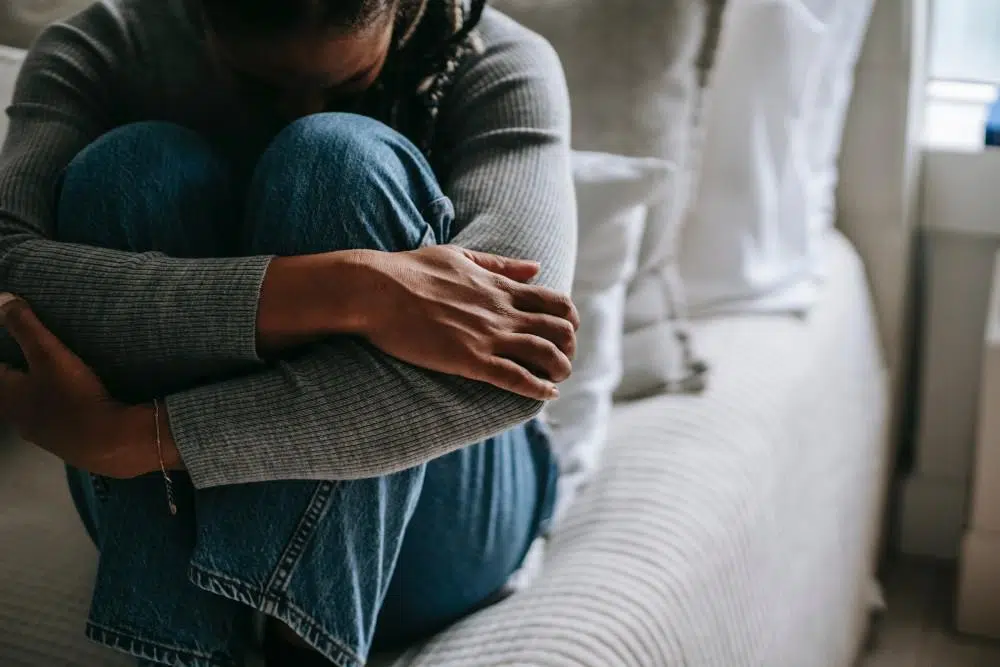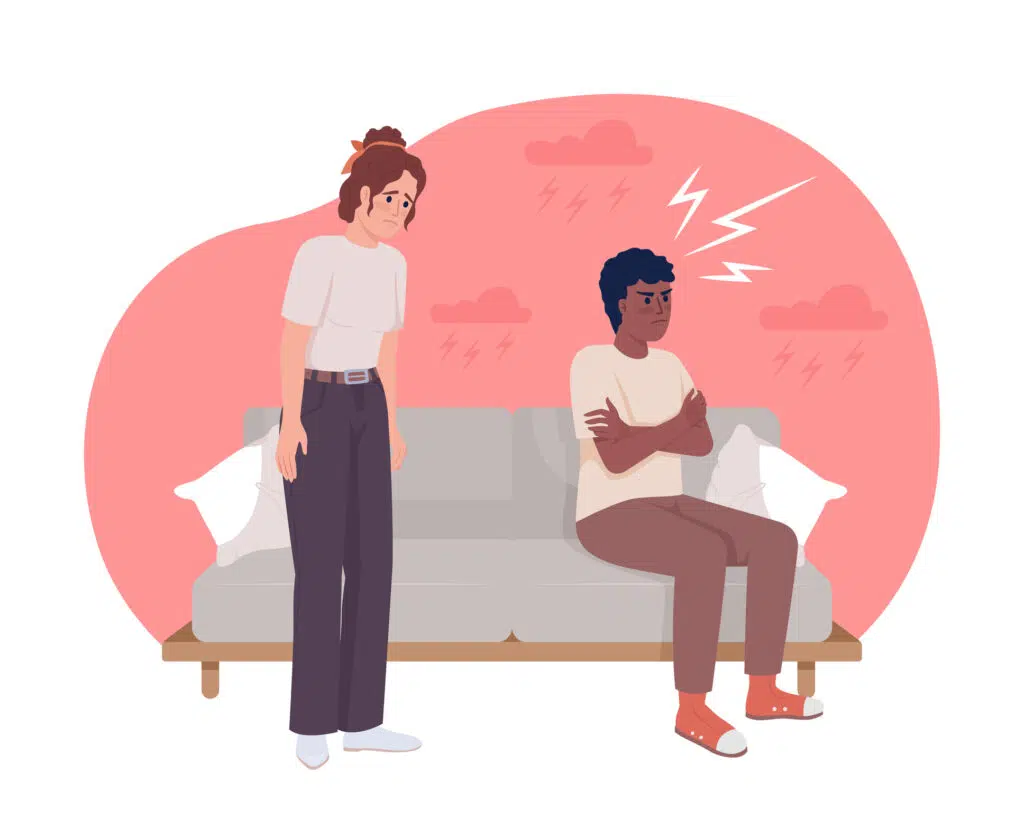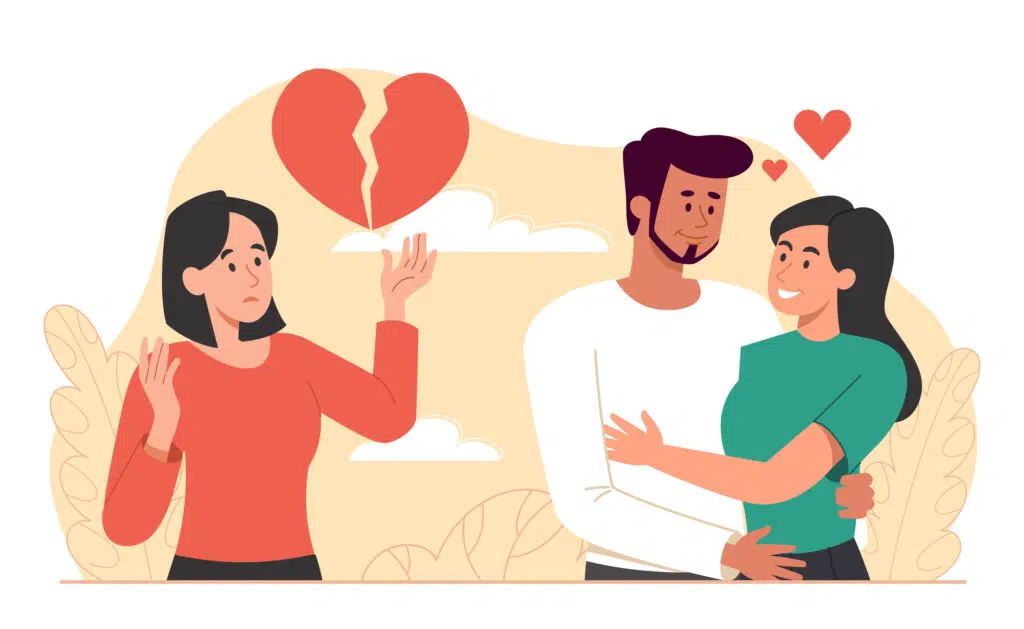What to Do When Experiencing a Panic Attack

Has your heart ever started to race for no apparent reason? Did you feel like you couldn’t breathe or think clearly? If so, you might have experienced a panic attack. At least 23% of people in the United States have gone through one or more of these episodes.
A stressful event or trigger can spur a panic attack, or it can happen unprovoked. Either way, these incidents can be scary and distressing for anyone. In some cases, a panic attack is a sign of an underlying mental health issue.
What Is a Panic Attack and What Causes It?
According to Dr. Alexander Alvarado, a licensed clinical psychologist in New York, NY, “a panic attack is the misreading of a person’s body. People feel a sensation and misinterpret it, and in some cases, believe they are dying. This spirals them down into a panic attack.”
In virtually all cases, panic attacks are harmless but usually have one or more symptoms:
- Feeling like you can’t get enough air
- Chest pains or rapid heartbeat
- Fear of impending death or “going crazy”
- Hot flashes or chills
- Lightheadedness, dizziness, or nausea
- Paralyzing terror
- Tingling in toes or fingers
- Shaking or trembling
- Sweating
Most panic attacks subside within 10 minutes. However, in some cases, a person can suffer repeated attacks for hours. Although many panic attacks occur without apparent reason, some are rooted in phobias or past traumas. Many people go through one or two panic attacks, which often go away once a stressful situation or problem subsides.
For some individuals, recurrent panic attacks might indicate an anxiety disorder, a condition that afflicts about 40 million (20%) of adults in the U.S. It can emerge at any age but often gets diagnosed during adolescence and early adulthood. Genetics might cause some people to be more susceptible to anxiety disorder and panic attacks.
Whether or not there’s a reason for the panic attack, its mere suddenness can be unsettling. Dr. Alvarado points out that panic attacks can be so uncomfortable that “most people have a second panic attack because they are terrified of having another one. It becomes a vicious cycle.”
Can a person suffer severe injury or even die from a panic attack? Such outcomes like hitting your head when fainting or rushing into traffic when fleeing a scary situation, are infrequent. However, few people run or faint during a panic attack; therefore, serious injury or death is very unlikely.
What Should I Do If I Experience a Panic Attack?
Although not life-threatening, panic attacks can be terrifying because they can make you feel out of control. To cope, you might think it’s best to avoid situations or thoughts that trigger anxiety. You may even try to mentally escape to a “happy place” to shut out the unpleasant thoughts or feelings that you’re experiencing.
Responses like deep breathing and imagining so-called “happy places” are distraction and avoidance techniques, according to Dr. Alvarado. They only divert your attention away from the real causes of your panic. A healthier tactic is to face your anxiety and not try to escape it.
When you feel a panic attack beginning, here are ways to help you get through it:
- Call it what it is—a panic attack. Consistently doing this lessens its horror. Once you’re able to do that, says Dr. Alvarado, you’ll increasingly see it as less terrifying, and it won’t happen as frequently. “However,” he says, “if you just try to avoid a panic attack, you’ll always view it as dangerous.”
- Seize the opportunity. Your first thought at the onset of a panic attack might be, Oh, no, not again! Why does have to happen now? However, there’s no such thing as a right or wrong moment. Instead, a panic attack can present the chance to grow and gain insight.
Dr. Stephen Hayes, a psychology professor at the University of Nevada, gives an example of a panic attack while stuck in traffic. In this context, you might become aware of an urge to throw a tantrum or think that others are judging you. In this instance, you can acknowledge these feelings and realize there’s more happening in that moment–a song on the radio or the people in the next lane. You can then remind yourself that you and everyone else are on the way to some destination. It’s a moment that will pass.
- Indulge your curiosity. Dr. Hayes also recommends approaching your anxiety with interest, the way a child might watch or follow a butterfly. If there’s a triggering location for you, consider going there to see what you observe. You’re not going with a goal in mind but to note what emotions, thoughts, or reactions you experience.
If you’re unsure you can do this, set a time limit like 10 seconds, and then build up for subsequent visits. Also, if stepping outside your house is a small win, then maybe next time you can walk to the end of the block, and then to the drug store, and so on.
How Can I Help Someone Experiencing a Panic Attack?
Even if you’ve never had a panic attack, witnessing someone else go through one can be upsetting. But there are steps you can take to help someone through it:
- Name it. Gently tell them that you think they’re having a panic attack. Doing so can help them gain a foothold in reality and face their fears. Also, remind them that it’ll soon pass.
- Give them space. A panic attack induces a “fight or flight” response, making them sensitive to environmental things like music, sirens, or bright lights. Reassure them that they’ll get through the panic attack and then give them some room. If they ask you to leave, first make sure they’re not in danger.
- Say something supportive. Show empathy without making them feel like they’re in danger. Avoid saying things like, “You’re alright” or “It’s not a big deal” because these statements can minimize their experience. Instead, try any of the following:
- “It’ll be over soon.”
- “You’ve got this.”
- “I’m right here. I’m not going anywhere.”
- “Just keep breathing.”
- “Do you want to go somewhere else or stay here?”
How Thriving Center of Psychology Can Help
While one or two isolated panic attacks might not be serious, recurrent episodes could signal an anxiety disorder, which requires treatment from a therapist or psychologist. Thriving Center of Psychology recommends getting help if you experience any of the following:
- Your symptoms make it difficult to get through the day.
- You suffer recurrent heart palpitations, headaches, or other types of pain.
- You abuse alcohol or chemical substances to cope.
- You avoid places and situations to prevent future panic attacks.
If anxiety and panic attacks are part of your life, you don’t need to suffer. You can turn to Thriving Center of Psychology, with offices at Soho and Manhattan in New York City, NY, Los Angeles, CA, Miami, FL, Minneapolis, MN, Princeton, NJ, and Portland, OR. Call and talk to a team member and book your in-person or teletherapy appointment. You can also visit the website to learn more and schedule a session.

How to Move On After a Friendship Breakup
Friendship breakups can sting just as much as a romantic breakup. After all, you’re experiencing a loss of shared history and an understanding of each other that can leave you feeling lonely and isolated. Not all friendships are forever, but moving on from the loss of a friendship does take time and some self-compassion.

Signs You’re in a Toxic Relationship
A toxic relationship can chip away at your well-being and happiness. Toxic partners can be manipulative and charming, making it difficult to recognize the signs that you’re in a toxic relationship. You deserve to be in a supportive and healthy relationship.

10 Common Marriage Reconciliation Mistakes to Avoid After Infidelity
Infidelity can leave couples devastated. If you’ve been affected by infidelity and want to salvage your relationship, rebuild trust, or make a tough decision, keep reading for 10 common reconciliation mistakes to avoid after infidelity.

Survey: 72% of Americans are Stressing About the Upcoming Presidential Election
Political viewpoints in the U.S. have always been contentious, but is the impact of politics in the United States making it difficult for people to live their everyday lives? With some anticipating another brutal and long campaign season ahead of the upcoming 2024 presidential election, nearly half of Americans say politics is negatively impacting their mental health.




